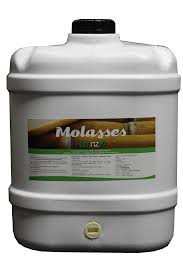China Connection
TB Fanatic
Molasses As Fertilizer: Information On Feeding Plants With Molasses Soil, Fixes & Fertilizers By: Susan Patterson,


Master Gardener Printer Friendly Version Image by Marshall Looking for an easy, low cost way to feed your plants? Consider feeding plants with molasses. Molasses plant fertilizer is a great way to grow healthy plants and as an added benefit, using molasses in gardens can help fend off pests. Let’s learn more about molasses as fertilizer. What is Molasses? Molasses is the by-product of beating sugarcane, grapes or sugar beets into sugar. The dark, rich, and somewhat sweet liquid is commonly used as a sweetener in baked goods, as a natural remedy for many ailments, and added to animal feed. Even though it is a by-product, molasses is full of vitamins and minerals. As a result, molasses as fertilizer is possible too.
Feeding Plants with Molasses Using molasses in organic gardening practices is nothing new. The sugar refinement process goes through three stages, each yielding a type of molasses product. Blackstrap molasses is created from the third boiling of sugar in the refinement process. Blackstrap molasses is high in calcium, magnesium, iron and potassium. It also contains sulfur and a host of micronutrients.
Using molasses as fertilizer provides plants with a quick source of energy and encourages the growth of beneficial microorganisms. Unsulphered blackstrap molasses is commonly added to organic fertilizers to give plants the necessary carbohydrates and trace minerals that they need to be healthy. Molasses can be added to organic liquid fertilizers, compost tea, alfalfa meal tea and kelp, to name a few.
When molasses is added to organic fertilizers, it provides food for the healthy microbes in the soil. The greater amount of microbial activity in the soil, the healthier plants will be. Add molasses at a rate of 1 to 3 tablespoons to 1 gallon of fertilizer for best results. Molasses can also be added to water and sprayed on plant leaves or poured on the soil. When the molasses is sprayed directly on plant leaves, the nutrients and sugar are absorbed quickly, and nutrients are immediately available.
Pest-Free Gardens Using molasses in gardens has the additional benefit of fighting off pests. Because molasses increases the overall vitality of plants, pests are less likely to attack your garden. Use a molasses and water mixture every two weeks, in addition to your molasses fertilizer, for best results. Molasses plant fertilizer is an excellent non-toxic and cost effective way to keep your plants happy and pest free.
Read more at Gardening Know How: Molasses As Fertilizer: Information On Feeding Plants With Molasses https://www.gardeningknowhow.com/garden-how-to/soil-fertilizers/feeding-plants-with-molasses.htm

Master Gardener Printer Friendly Version Image by Marshall Looking for an easy, low cost way to feed your plants? Consider feeding plants with molasses. Molasses plant fertilizer is a great way to grow healthy plants and as an added benefit, using molasses in gardens can help fend off pests. Let’s learn more about molasses as fertilizer. What is Molasses? Molasses is the by-product of beating sugarcane, grapes or sugar beets into sugar. The dark, rich, and somewhat sweet liquid is commonly used as a sweetener in baked goods, as a natural remedy for many ailments, and added to animal feed. Even though it is a by-product, molasses is full of vitamins and minerals. As a result, molasses as fertilizer is possible too.
Feeding Plants with Molasses Using molasses in organic gardening practices is nothing new. The sugar refinement process goes through three stages, each yielding a type of molasses product. Blackstrap molasses is created from the third boiling of sugar in the refinement process. Blackstrap molasses is high in calcium, magnesium, iron and potassium. It also contains sulfur and a host of micronutrients.
Using molasses as fertilizer provides plants with a quick source of energy and encourages the growth of beneficial microorganisms. Unsulphered blackstrap molasses is commonly added to organic fertilizers to give plants the necessary carbohydrates and trace minerals that they need to be healthy. Molasses can be added to organic liquid fertilizers, compost tea, alfalfa meal tea and kelp, to name a few.
When molasses is added to organic fertilizers, it provides food for the healthy microbes in the soil. The greater amount of microbial activity in the soil, the healthier plants will be. Add molasses at a rate of 1 to 3 tablespoons to 1 gallon of fertilizer for best results. Molasses can also be added to water and sprayed on plant leaves or poured on the soil. When the molasses is sprayed directly on plant leaves, the nutrients and sugar are absorbed quickly, and nutrients are immediately available.
Pest-Free Gardens Using molasses in gardens has the additional benefit of fighting off pests. Because molasses increases the overall vitality of plants, pests are less likely to attack your garden. Use a molasses and water mixture every two weeks, in addition to your molasses fertilizer, for best results. Molasses plant fertilizer is an excellent non-toxic and cost effective way to keep your plants happy and pest free.
Read more at Gardening Know How: Molasses As Fertilizer: Information On Feeding Plants With Molasses https://www.gardeningknowhow.com/garden-how-to/soil-fertilizers/feeding-plants-with-molasses.htm
